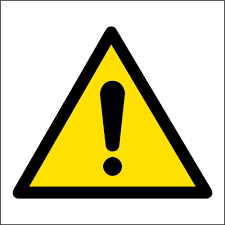Common Gas Pipeline Hazards and How to Avoid Them
Gas pipelines are an efficient and convenient way to power your home, but like any utility, they come with potential risks. Understanding common gas pipeline hazards and knowing how to avoid them ensures the safety of your household and the longevity of your system. This guide will help you identify hazards and provide actionable tips to maintain a safe environment.
11/25/20242 min read


1. Gas Leaks: The Silent Danger
Gas leaks are one of the most serious hazards associated with gas pipeline systems. They often occur due to poor installation, aging pipelines, or physical damage. Leaks can lead to explosions, fires, or health risks due to prolonged exposure to gas fumes.
How to Avoid Gas Leaks
Professional Installation: Always choose experienced professionals for your gas pipeline installation to ensure the system is correctly set up.
Routine Inspections: Schedule regular maintenance to check for wear and tear.
Install Gas Detectors: A gas detector can quickly alert you to any leaks.
2. Corrosion of Pipelines
Pipelines, especially metal ones, are susceptible to corrosion over time, particularly in humid or coastal areas. Corrosion weakens the pipeline, increasing the risk of leaks or rupture.
How to Prevent Corrosion
Choose Quality Materials: During gas pipeline installation, opt for corrosion-resistant materials like coated steel or PVC.
Protective Coatings: Ensure pipelines are coated to prevent rust.
Monitor Humidity Levels: Keep an eye on the environment around exposed pipelines.
3. Poor Installation Practices
Improperly installed gas pipelines can cause leaks, uneven gas flow, or damage to appliances. Common issues include poorly sealed joints, incorrect pipe sizing, and substandard materials.
How to Avoid Installation Errors
Hire Certified Installers: Only work with licensed professionals who specialize in gas pipeline installation.
Inspect Before Use: Conduct a thorough inspection post-installation to identify any issues.
Check Credentials: Verify the credentials and experience of the installation team.
4. Physical Damage
External factors like construction work, natural disasters, or accidental impact can damage gas pipelines, leading to hazardous situations.
How to Prevent Physical Damage
Know Pipeline Locations: Before any digging or renovation, identify where pipelines are located.
Use Pipeline Markers: Clearly mark pipeline locations around your property.
Reinforce Exposed Pipelines: Protect exposed areas with durable coverings.
5. Blocked Gas Vents
Blocked vents prevent the proper escape of exhaust gases, which can lead to carbon monoxide buildup. This is particularly dangerous in homes with poor ventilation.
How to Avoid Blocked Vents
Regular Cleaning: Clean vents and chimneys periodically to remove debris.
Install Carbon Monoxide Detectors: These devices can alert you to dangerous gas buildup.
Ensure Proper Ventilation: Keep the area around vents clear and unobstructed.
6. Inadequate Maintenance
Neglecting regular maintenance can lead to small issues escalating into major hazards. Dust buildup, wear and tear, and unnoticed leaks are common problems in poorly maintained systems.
How to Stay on Top of Maintenance
Annual Checkups: Schedule an annual inspection with a professional gas pipeline installation company.
Monitor Gas Usage: Unusual spikes in gas bills can indicate leaks or inefficiencies.
Follow Manufacturer Guidelines: Maintain appliances as recommended by the manufacturer.
7. Natural Disasters
Earthquakes, floods, and landslides can disrupt or damage gas pipelines, creating immediate risks.
How to Prepare for Natural Disasters
Emergency Shut-Off Valve: Install an automatic shut-off valve during your gas pipeline installation.
Have an Emergency Plan: Train your family on how to react in case of a gas leak.
Inspect After Disasters: Have a professional inspect your pipeline system following any natural disaster.
Why Professional Gas Pipeline Installation Matters
Many of these hazards can be mitigated with proper gas pipeline installation by experienced professionals. A reputable company ensures the use of high-quality materials, follows safety protocols, and provides ongoing support for maintenance and repairs.
Conclusion
Gas pipeline systems are a safe and cost-effective energy source when installed and maintained properly. By understanding and avoiding these common hazards, you can enjoy a safe and worry-free experience.
Investing in expert gas pipeline installation and regular maintenance ensures the safety and efficiency of your system. Prioritize safety and let professionals handle the complexities, so you can enjoy the convenience without the risks.
Contact US Today:
Email: info@vaultgaspipeline.site
Phone:
+91 8522 09 2525
+91 95155 92020


Quick Links:
Services
Our Process
Why Choose us
Contact us
Our Services:
Gas Pipeline Installation
Gas Pipeline Maintenance
